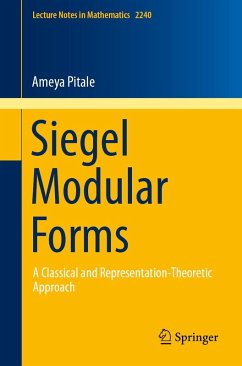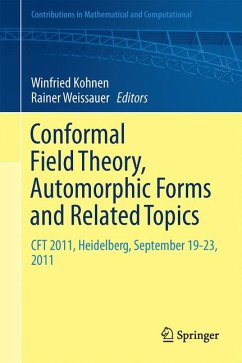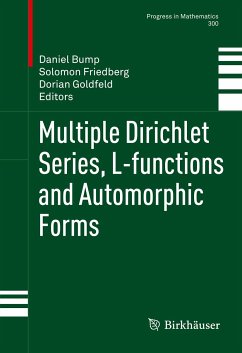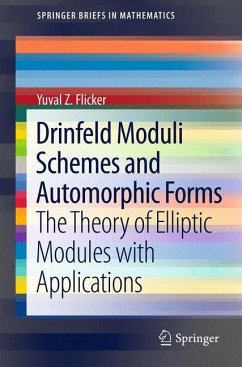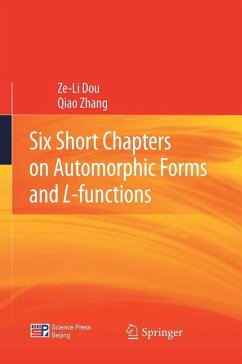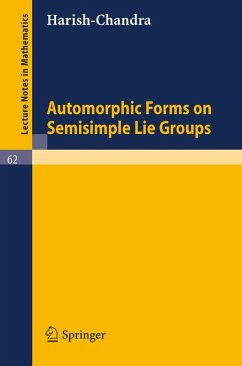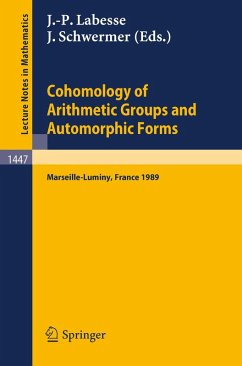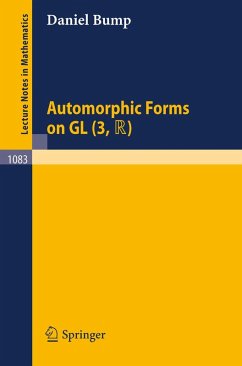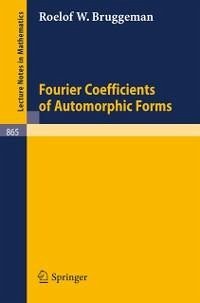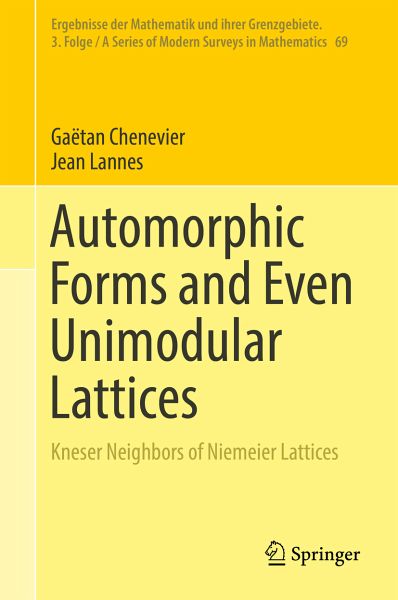
Automorphic Forms and Even Unimodular Lattices (eBook, PDF)
Kneser Neighbors of Niemeier Lattices
Übersetzer: Erné, Reinie

PAYBACK Punkte
52 °P sammeln!
This book includes a self-contained approach of the general theory of quadratic forms and integral Euclidean lattices, as well as a presentation of the theory of automorphic forms and Langlands' conjectures, ranging from the first definitions to the recent and deep classification results due to James Arthur.Its connecting thread is a question about lattices of rank 24: the problem of p-neighborhoods between Niemeier lattices. This question, whose expression is quite elementary, is in fact very natural from the automorphic point of view, and turns out to be surprisingly intriguing. We explain h...
This book includes a self-contained approach of the general theory of quadratic forms and integral Euclidean lattices, as well as a presentation of the theory of automorphic forms and Langlands' conjectures, ranging from the first definitions to the recent and deep classification results due to James Arthur.
Its connecting thread is a question about lattices of rank 24: the problem of p-neighborhoods between Niemeier lattices. This question, whose expression is quite elementary, is in fact very natural from the automorphic point of view, and turns out to be surprisingly intriguing. We explain how the new advances in the Langlands program mentioned above pave the way for a solution. This study proves to be very rich, leading us to classical themes such as theta series, Siegel modular forms, the triality principle, L-functions and congruences between Galois representations.
This monograph is intended for any mathematician with an interest in Euclidean lattices, automorphic forms or number theory. A large part of it is meant to be accessible to non-specialists.
Its connecting thread is a question about lattices of rank 24: the problem of p-neighborhoods between Niemeier lattices. This question, whose expression is quite elementary, is in fact very natural from the automorphic point of view, and turns out to be surprisingly intriguing. We explain how the new advances in the Langlands program mentioned above pave the way for a solution. This study proves to be very rich, leading us to classical themes such as theta series, Siegel modular forms, the triality principle, L-functions and congruences between Galois representations.
This monograph is intended for any mathematician with an interest in Euclidean lattices, automorphic forms or number theory. A large part of it is meant to be accessible to non-specialists.
Dieser Download kann aus rechtlichen Gründen nur mit Rechnungsadresse in A, B, BG, CY, CZ, D, DK, EW, E, FIN, F, GR, HR, H, IRL, I, LT, L, LR, M, NL, PL, P, R, S, SLO, SK ausgeliefert werden.



